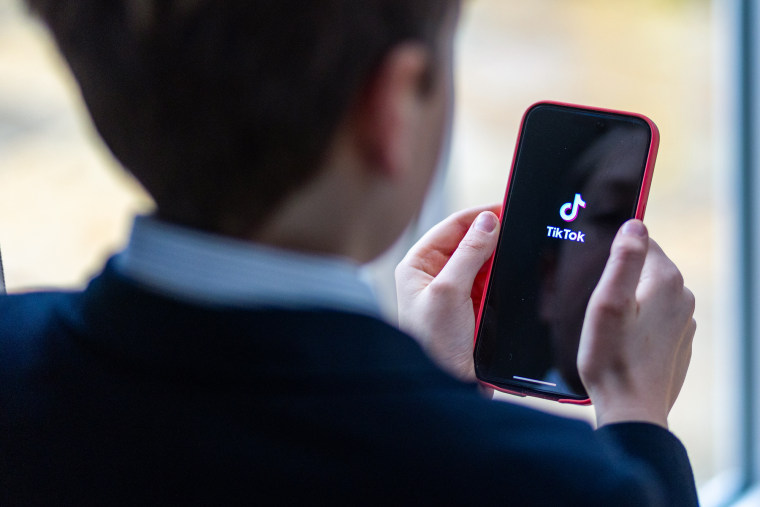WASHINGTON — Nearly a year after TikTok’s CEO was grilled on Capitol Hill, House Republicans and Democrats are joining together on legislation that would force its parent company, China-based ByteDance, to divest the popular social media company or risk the U.S.’s banning it from app stores.
The bill is co-authored by the bipartisan leaders of the select committee on the Chinese Communist Party, Chairman Mike Gallagher, R-Wis., and ranking member Raja Krishnamoorthi, D-Ill., who also serve on the Intelligence Committee. Both lawmakers recently returned from a visit to Taiwan and the greater Indo-Pacific region.
The White House has signaled support for the bill while stopping short of endorsing it.
On Thursday, the Energy and Commerce Committee, led by Chair Cathy McMorris Rodgers, R-Wash., plans to mark up the bipartisan bill and pass it, sending it to the House floor for a future vote. She said her committee has kept leadership "in the loop" and been closely working with the White House on the bill. Administration officials have provided technical assistance on the bill, she said.
“It’s a very narrow, targeted bill that we’ve worked very hard to build bipartisan support,” McMorris Rodgers told reporters. “This is about protecting Americans.”
The bill, dubbed the Protecting Americans from Foreign Adversary Controlled Applications Act, would create a process for the president — through the FBI and intelligence agencies — to identify certain social media applications under the control of foreign adversaries, like China, Russia, Iran and North Korea, as national security threats.
Once an app was deemed a risk, it would be banned from online app stores and web-hosting services unless it severed ties with entities under control of the foreign adversary within 180 days of the designation. That would mean TikTok, which FBI Director Christopher Wray has testified poses a risk to national security, could face a potential ban unless ByteDance acts quickly to divest it.
U.S. lawmakers and intelligence officials are concerned that the Chinese government could use TikTok to access personal data from its more than 150 million users and show them videos that could influence their views on particular issues, including the coming presidential election. Testifying before Congress, TikTok CEO Shou Zi Chew has denied that the Chinese government controls the app and pushed back against suggestions that China accesses U.S. user data.
"This bill is an outright ban of TikTok, no matter how much the authors try to disguise it,” a TikTok spokesperson said in a statement. “This legislation will trample the First Amendment rights of 170 million Americans and deprive 5 million small businesses of a platform they rely on to grow and create jobs.”
Speaking to reporters Wednesday, Gallagher argued that he and other co-sponsors are not trying to ban the enormously popular or trying to quash free speech.
“It is not a ban. Think of this as a surgery designed to remove the tumor and thereby save the patient in the process,” Gallagher said.
“If you value your personal freedom and privacy online, if you care about Americans’ national security at home, and yes, even if you want TikTok to stick around in the United States,” he said, “this bill offers the only real step toward each of those goals.”
The White House has signaled strong support for the bipartisan measure, though it's still eyeing some changes. A National Security Council spokesperson said the Biden administration has worked with lawmakers in both parties “to arrive at a durable legislative solution that would address the threat of technology services operating in the United States in a way that poses risks to Americans’ sensitive data and our broader national security. This bill is an important and welcome step to address that threat.”
The NSC official applauded Gallagher and Krishnamoorthi’s work on the issue and said, “We look forward to working with Congress to further strengthening this legislation to put it on the strongest possible legal footing.”
“The President additionally urges Congress to do its part and pass comprehensive bipartisan privacy legislation, especially to protect the safety of our children,” the official said in a statement.
Krishnamoorthi, the top Democrat on the China panel, was pressed Wednesday about why the Biden re-election campaign is using TikTok if it’s a national security threat.
“I’m not going to tell him how to campaign. I don’t have a TikTok account on my personal device. And it’s, you know, it’s banned on public devices here in Congress,” Krishnamoorthi said. “I would just say, look, we know what the facts are. And I would just ask people to be very careful and cautious in using it.”



